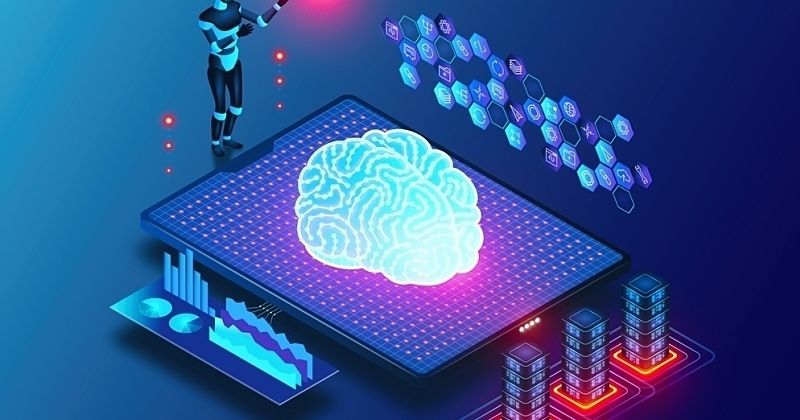In today’s fast paced digital economy, businesses heavily rely on software to streamline operations, engage customers and scale growth. However, not all software projects succeed. In fact, studies show that over 30% of software projects fail, while many others run over budget, miss deadlines, or fail to deliver the intended value.
The reasons are diverse poor project management, changing requirements, technical debt, lack of skilled talent, or inefficient workflows. But here’s the good news: Artificial Intelligence (AI) is emerging as a powerful solution to rescue failing software projects and put them back on track.
For businesses, this isn’t just about saving sunk costs its about reviving investments, accelerating timelines, improving quality and regaining customer trust.
In this blog, we will explore how AI is transforming failing software projects into success stories and why forward thinking companies are turning to AI-powered software development companies for rescue.
Why Software Projects Fail in the First Place
Before diving into AI’s role, let’s highlight some of the most common causes of project failure:
Unclear Requirements: Miscommunication or poorly documented needs lead to scope creep.
Poor Time & Budget Estimates: Overly optimistic planning often causes resource shortages.
Skill Gaps in Development Teams: Lack of expertise in new technologies creates roadblocks.
Inefficient Testing & QA: Bugs discovered late in the cycle delay launches.
Low User Adoption: Final product doesn’t align with user expectations.
Technical Debt: Shortcuts taken early lead to performance bottlenecks later.
These challenges are not uncommon. But what sets successful companies apart is their ability to adapt and innovate using AI.
How AI Helps Revive Failing Software Projects
1. Predictive Project Management
AI-powered project management tools use data analytics and machine learning to:
Identify risks before they escalate.
Predict timeline overruns.
Suggest optimal resource allocation.
This means managers get real time insights to steer projects in the right direction before failure sets in.
2. Automated Code Review and Refactoring
One of the biggest pain points in failing projects is messy, error-prone code. AI-driven platforms such as DeepCode or GitHub Copilot automatically review code, detect bugs and even suggest optimized refactoring.
This helps in:
Reducing technical debt.
Improving software performance.
Speeding up development without compromising quality.
3. Enhanced Quality Assurance (AI in Testing)
Traditional QA often struggles with repetitive, time consuming manual testing. AI enables:
Automated test case generation.
Smart bug detection and root cause analysis.
Regression testing with faster turnaround.
Result: Fewer bugs, faster delivery and improved user satisfaction.
4. Smarter Requirement Analysis
AI-powered Natural Language Processing (NLP) tools can analyze client communications, documentation and feedback to extract actionable requirements.
This helps teams reduce misinterpretations, align deliverables with business goals and ensure the software meets real user needs.
5. AI-Powered DevOps & Continuous Delivery
AI enhances DevOps pipelines by:
Automating deployment.
Monitoring application performance in realtime.
Predicting failures before they impact end users.
With AI in DevOps, companies achieve continuous integration and delivery, reducing downtime and boosting reliability.
6. Intelligent Resource Optimization
Failing projects often waste time and budget on mismanaged resources. AI algorithms optimize staffing, identify bottlenecks and suggest skill alignments.
For example, AI can recommend reallocating developers to critical tasks or automating repetitive work so the team can focus on innovation.
7. AI for User Experience Improvement
Sometimes projects fail because users simply do not adopt the product. AI helps here too by:
Tracking user behavior with predictive analytics.
Recommending UX/UI improvements.
Personalizing user journeys for higher engagement.
This ensures the final product is not only functional but also loved by users.
Case in Point: Real World AI Rescues
Microsoft’s AI Testing Tools reduced bug detection time by 50% in large enterprise projects.
Google’s AI-powered code suggestion systems cut developer workload significantly.
Businesses leveraging AI-driven analytics for project monitoring reported 30–40% fewer delays.
These examples prove AI isn’t just theory its already reviving failing projects globally.
Why Businesses Should Partner with an AI-Driven Software Development Company
Reviving a failing project requires more than just tools—it needs experienced developers, project managers and AI integration experts. Partnering with a company like WeeTech Solution offers:
Proven expertise in AI-driven software development.
End-to-end project rescue strategies.
Custom solutions for enterprise, startups and SMBs.
Agile processes ensuring faster turnaround and scalability.
Conclusion
A failing software project doesn’t mean wasted investment. With AI, businesses can predict risks, fix errors, optimize resources and enhance user experience—turning potential failure into a competitive advantage.
If your project is struggling, it’s time to explore how AI can revive it. Partnering with an AI-powered software development company ensures that your business not only saves time and costs but also emerges stronger in the digital landscape.
Remember: Failure is not the end—AI makes it a new beginning.



Top comments (2)
Artificial intelligence is transforming the way struggling software projects are managed, and integrating the Best EDI Software can play a crucial role in project recovery. By automating data exchange and streamlining workflows, the Best EDI Integration Software reduces manual errors and ensures timely communication between teams and partners. This efficiency allows project managers to focus on critical issues, identify bottlenecks, and implement solutions faster, ultimately reviving failing software initiatives with greater accuracy and control.
This article on how AI can revive failing software projects is really eye-opening! I love the way it highlights AI’s ability to analyze project data, identify bottlenecks, and suggest actionable solutions—it’s like having a smart assistant that can foresee issues before they escalate. It reminds me of how technology platforms like Photocall TV use AI to personalize content and improve user experience, showing the impact of intelligent systems across different fields. Have you ever considered using AI tools to troubleshoot or optimize a project you’re working on?
Some comments may only be visible to logged-in visitors. Sign in to view all comments.